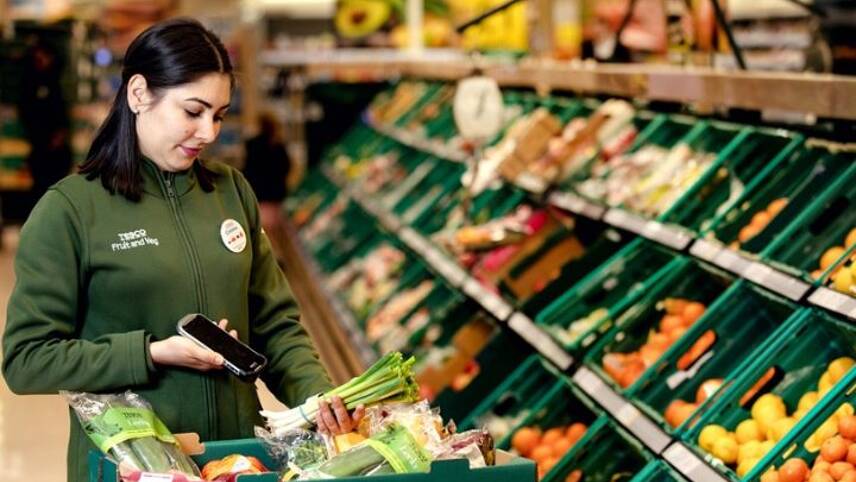Register for free and continue reading
Join our growing army of changemakers and get unlimited access to our premium content

Olio is used by more than two million individuals and organisations. Image: Tesco
Under the partnership, Olio’s network of volunteers will visit Tesco stores and collect surplus food that is nearing its sell-by date. They will then upload the products onto the Olio app for individuals and community groups to claim and arrange collection. Contact-free processes have been put in place in light of Covid-19.
Olio is particularly well-known for effectively redistributing fresh foods with a short shelf-life, so the partnership should help Tesco to cut food waste across departments such as fruit and vegetables, meat and fish, dairy and bakery.
Tesco is the first major supermarket to work with Olio at all of its stores. The app has, since its launch in 2015, garnered extensive support from individuals, community groups and independent cafes and restaurants. Tesco also has previously undertaken smaller trials with Olio to divert specific food streams, like ‘wonky’ produce, from waste.
“We want to make sure that any surplus food is being managed and people who need it have access to it,” Tesco’s head of communities Claire de Silva said, alluding to recent Trussell Trust research revealing that food bank use could increase by almost two-thirds this winter.
“The results of our trial have allowed us to roll out the partnership in our commitment to make sure no good food goes to waste.”
Food waste fight
Tesco’s extended partnership with Olio builds on its work with FareShare, the food redistribution service it has collaborated with since 2015.
Between January 2015 and May 2019, Tesco provided the equivalent of 60 million meals to FareShare. The organisation works with a network of thousands of charities and community groups to provide food that meets their needs.
Such collaborations form part of Tesco’s overarching ambition to align with Sustainable Development Goal (SDG) 12.3, which includes a target to halve food waste by 2030.
Aside from food wasted from its stores, Tesco engages suppliers in line with the processes outlined in WRAP’s food waste reduction roadmap, which encourages a ‘farm to fork’ approach. And, in recognition of the fact that the majority of the food waste generated in the UK is attributable to homes, it recently started working with environmental charity Hubbub to identify effective behaviour change enablers for preventing domestic food waste.
The supermarket is also urging other large food businesses to follow its example and disclose food waste data publicly on an annual basis, and is engaging with policymakers at the Department for Food, the Environment and Rural Affairs (Defra) to help design effective policy mechanisms for reducing food waste.
Sarah George


Please login or Register to leave a comment.